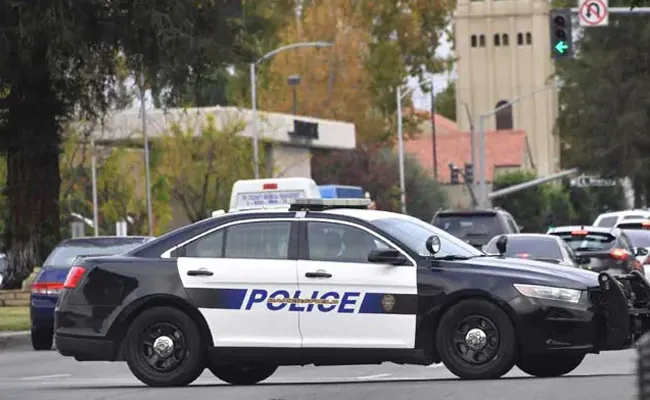Satinder Lambah, a diplomat who led the channel process back between India and Pakistan from 2005 to 2014, and was not shaken until the end in his belief that involvement with the enemy was a must, died in New Delhi on Thursday night. He has been sick for about a year. He is 81 years old.
When the special envoy of Prime Minister Manmohan Singh to Pakistan, Lambah held a talks behind the wise screen with his colleague Tariq Aziz, was appointed for the back channel process by the military rulers General Parvez Musharraf. In his death, India has lost the leading expert in Pakistan.
Guld also serves as a special messenger for Afghanistan from 2001 to 2004. He is a Delhi delegation at the Bonn Conference and leads Indian participation in reconstruction and post-tubes Delhi who was successful with the country.
An Indian foreign service officer from the 1964 group, Lambah, previously served as Deputy Commissioner of the High Commissioner and High Commissioner of Pakistan, and also a joint secretary in the Pakistan-Afghan-Iran division at the Ministry of External Affairs. His colleagues remember him as a diplomat that emphasizes themselves but skilled. His last post before he retired was the ambassador for Moscow from 1998 to 2001.
Lebah was born in Peshawar’s Pre-Partition, as well as his wife Nilima, and during his two tours in the country, he built a variety of great contact between the political and social elites of Pakistan which he was mobilized for advancing bilateral bonds.
He happened to meet Nawaz Sharif in the 1980s, during his first post to Pakistan, through a friend together. Young Sharif, who later worked in a family steel business and was breastfeeding political ambitions, was waiting to receive ledr at Lahore Airport when he flew from Islamabad. Both of them drove back to the city in Sharif’s red sports car.
When he returned to Islamabad as a high commissioner of India, the day after he gave his trust, Sharif, at that time the Prime Minister, hosted a big lunch in honor, a speech that had never happened before for an Indian diplomat in Pakistan.
At the end of his term there, he was given the same separation by Benazir Bhutto, who had replaced Sharif as Prime Minister. Regarding the advice of foreign offices at the time, he hosted the lunch reception to say goodbye.
“He is an old school diplomacy, who is about people, personal contact and face-to-face interaction, and he is truly charming,” said a colleague at the Indian foreign service.
Amitabh Mattoo, a professor at the JNU International Study School, described it “as the best Foreign Secretary India never had”.
The role of Lower as a negotiator for the back channel of Singh and Musharraf saw that the relationship between the two countries increased rapidly from 2004 to 2008. The ceasefire had existed since 2003. In 2006, India and Pakistan were said to be close to the agreement in Kashmir through The Back Channel. And in early 2007, both parties reportedly exchanged “white paper” which detailed the requirements, although Lower itself had never talked about this.
The decline in the Musharraf after his poor decision to fire the chairman of the court in March 2007 postponed the agreement, Lambah said in the interview. Bus services throughout the LOC to enable the interaction between the two J&K sides and cross-Loc trade, applied during this time, seems to have become part of the proposed resolution.
After the 2008 Mumbai attack, the back channel stuttered until 2014 with Pakistani flip -flops about tracking and demanding that Mumbai perpetrators ensure virtual termination of bilateral involvement. At one point, the civil government led by PPP Post-Musharraf denies the existence of “white paper”.
Lambah argues in the interview until 2015 that the formula he and Aziz have prepared have leadership approval on both sides. He described it as “Win-Win” for the two countries and said it could function as a basis for the future resolution of the Kashmir problem.
In a speech at Jadavpur University in Kolkata in September 2018, Lower said it was impossible that Pakistan would change fundamentally in his attitude towards India, but, to become an effective regional or global player, was India’s interest to ensure good relationships to ensure relationships good to ensure good relationships to ensure good relationships to ensure good to ensure good relationships to ensure good relationships to ensure good things to ensure good things to ensure good to ensure good things to ensure good relationships to ensure good for good ensure good relations to ensure good relations to ensure good relations to ensure good relations to ensure good relations to ensure good relations to ensure good relations to ensure good relations to ensure Indian good relations with neighbor.
For this, he said the engagement – different from dialogue – must be maintained. He also showed that bilateral problems should not be a political problem of domestic elections. He is a voter from a visa regime that is not limited to allow as many Pakistani people as possible to visit India, with the reason that they are the best ambassadors in India in Pakistan. He also believes that India must set his own home in J&K to prevent outsiders from fishing in problematic waters.
During the rear channel years, Lambah confirmed confidentiality about his mission, even though he was chased by Newshounds. Even in the following years, he will only discuss it in general, and be careful not to give too much detail.
“He is very wise in terms of what he shared about his assessment and conclusion. As someone who is very involved with Pakistan as a designated back channel contact, he still cannot be understood by outsiders, “said T C A Raghavan, who served as a representative of the High Commissioner in Islamabad during those years, and later became a high commissioner of Pakistan.
When this reporter will go to Pakistan with a long -term task as a foreign correspondent, he suggested: “You will be one of only two Indians (at that time there were two Indian journalists based in Pakistan) who could write what they saw and listened to other people to read. Write a lot, write about everything. We also write diplomats, but that is for files. “
While his biggest contribution was Indian diplomacy with Pakistan and Afghanistan, he was also remembered for laying the foundation of strong Indian involvement with Silicon Valley, for many years as the Consul General in San Francisco in the early 1990s. He also mobilized the NRI on the US west coast to contribute to establishing the first Indian study chairman in Berkeley, which, due to a large -massive response, became two seats. He has given an interesting explanation about this in the oral history of Indian foreign affairs.
Little are now remembering that when he was an ambassador to Germany, Lower also initiated the first contact between the Indian government and daughter Netaji Subhash Chandra Bose in Germany, Anita PFAFF, for permission to bring back the Abu Fighters from the Renkoji Temple in Tokyo, where Tokyo, where Tokyo, Where they are preserved. Then the Minister of External Affairs Pranab Mukherjee met PFAFF during a visit to Germany in 2012.
In Moscow, he also made a sign, working on the Indian-Russian strategic partnership signed in October 2000, and began the first investment of Ongc abroad in the field of sakhalin gas, a business that continues to be productive to date.


 US Man Guns Down 5 Neighbours, They Had Protested His Shooting Practice
US Man Guns Down 5 Neighbours, They Had Protested His Shooting Practice  Fatima Bhutto, former Pakistan PM Benazir Bhutto’s niece, marries in intimate ceremony
Fatima Bhutto, former Pakistan PM Benazir Bhutto’s niece, marries in intimate ceremony  Two US Army Helicopters Crash During Alaska Training Flight
Two US Army Helicopters Crash During Alaska Training Flight  Biden Says Nuclear Attack By North Korea Would Result In “End Of Regime”
Biden Says Nuclear Attack By North Korea Would Result In “End Of Regime”  With 72-hour ceasefire in place, India scrambles to evacuate citizens from Sudan
With 72-hour ceasefire in place, India scrambles to evacuate citizens from Sudan  To “Meet Jesus”, 47 Cult Members In Kenya Allegedly Starve To Death: 5 Facts
To “Meet Jesus”, 47 Cult Members In Kenya Allegedly Starve To Death: 5 Facts  What does the remote health kiosk measure?
What does the remote health kiosk measure?